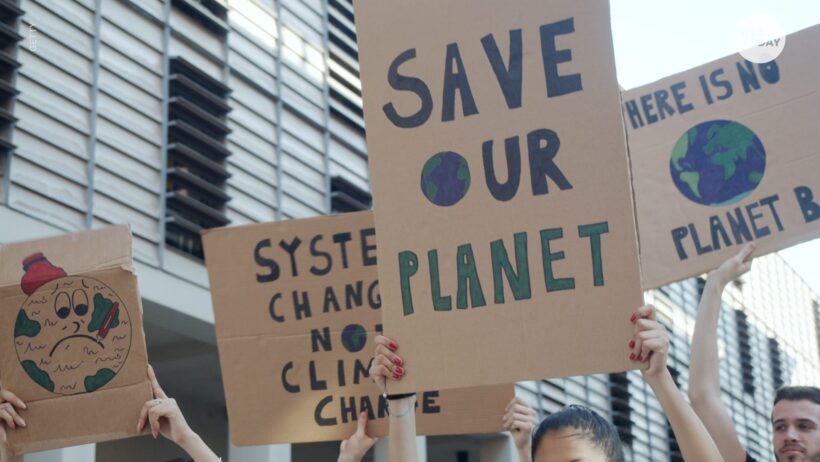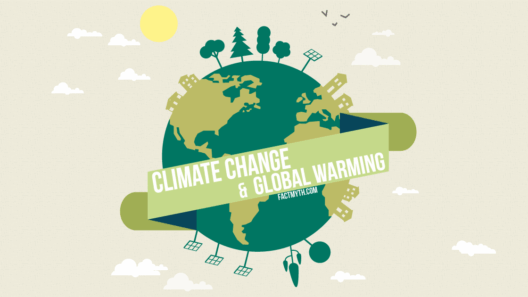Climate change is not just a distant threat; it is an existential reality that demands immediate action. The notion that we can avoid its catastrophic consequences is often met with skepticism. Yet, the question remains: can we genuinely prevent climate change? This exploration delves into the multifaceted approaches we can adopt to mitigate its effects, fostering a shift in perspective that emphasizes both individual responsibility and systemic change.
Understanding the Origins: What Fuels Climate Change?
To comprehend how we can avert the dire impacts of climate change, it is imperative to first unravel its origins. Anthropogenic activities—primarily the burning of fossil fuels, deforestation, and industrial processes—release greenhouse gases (GHGs) into the atmosphere. These gases trap heat, leading to rising temperatures and unprecedented climatic shifts. By identifying the primary culprits, we can begin to pivot toward sustainable practices that not only mitigate these emissions but also promote a healthier planet.
The scientific consensus is stark: without significant changes, we are on a trajectory that could see average global temperatures rise by more than 2°C above pre-industrial levels by 2100. This threshold could unleash detrimental effects such as extreme weather events, loss of biodiversity, and sea-level rise. However, the silver lining in this grim narrative is the growing body of evidence suggesting that concerted efforts could reverse some of this damage.
Individual Action: Small Changes, Big Impact
Many may feel overwhelmed, believing that individual actions are inconsequential in the grand scheme of climate change. This misconception underestimates the collective power of grassroots movements. Every small step contributes to a larger paradigm shift. For instance, reducing meat consumption, favoring plant-based diets, or simply being more mindful of food waste can significantly lessen one’s carbon footprint. Studies show that if the entire population in developed nations adopted a plant-centric diet, it could save billions of metric tons of carbon dioxide emissions annually.
Additionally, reevaluating energy consumption habits can dramatically influence our carbon emissions. Changing light bulbs to energy-efficient LED counterparts, employing smart thermostats, and investing in renewable energy sources, such as solar panels, are practical steps that households can embrace. The cumulative effect of these individual endeavors can pave the way for larger societal changes, leading to advocacy for policy-driven solutions at the governmental level.
Community Engagement: The Power of Collective Action
While individual actions are significant, the importance of community engagement cannot be overstated. Communities that band together to adopt sustainable practices can amplify their impact exponentially. Local initiatives, such as community gardens and carpooling programs, foster collective responsibility and camaraderie while simultaneously reducing carbon output. Organizing and participating in tree-planting drives can increase community green spaces, promote biodiversity, and serve as a tangible countermeasure to urban carbon emissions.
Furthermore, grassroots advocacy plays a crucial role in influencing policy changes that have far-reaching implications. Mobilizing local voter bases to support environmental legislation, such as carbon pricing or renewable energy incentives, contributes to structural transformations that may be beyond the scope of individual efforts. Public forums, workshops, and awareness campaigns raise consciousness around the climate crisis and galvanize collective action, leading to the kind of systemic change that is essential for lasting impact.
Shifts in Industry: The Role of Corporations
It is no longer sufficient to rely solely on individual and community efforts; the role of corporations in mitigating climate change cannot be overlooked. Industries are among the largest contributors to greenhouse gas emissions worldwide. Therefore, holding companies accountable for their carbon footprints is vital. Demonstrating consumer demand for sustainable practices can pressure organizations to operate more responsibly.
Leading companies are increasingly recognizing the necessity of sustainability as a core principle of their business models. This evolution is demonstrated through the development of green technologies, sustainable sourcing of materials, and reduction of waste through circular economy principles. By supporting businesses that prioritize environmental responsibility and advocating for transparency in corporate practices, individuals can drive demand for sustainable products and services.
Innovation and Technology: A Beacon of Hope
Technological advancements play a pivotal role in combating climate change. Innovations in renewable energy technologies, such as solar, wind, and hydropower, are at the forefront of reducing reliance on fossil fuels. The advent of electric vehicles (EVs) is revolutionizing personal and public transportation, minimizing greenhouse gas emissions statewide. Additionally, carbon capture and storage technologies represent groundbreaking solutions for mitigating emissions from existing infrastructure.
Moreover, research into sustainable agriculture—like precision farming techniques and regenerative practices—holds the potential to transform food production while preserving natural ecosystems. The integration of artificial intelligence in energy management systems can optimize energy consumption, facilitating smarter grids and enhanced efficiency.
Conclusion: A Call to Action
The battle against climate change is fraught with challenges, but it is a fight that is far from futile. We stand at a crucial juncture where our choices today can shape the environmental landscape of tomorrow. By recognizing the interplay between individual actions, community engagement, corporate responsibility, and technological innovation, we can catalyze significant progress in mitigating climate change.
A paradigm shift is not just necessary; it is possible. Each decision we make, from the food we consume to the companies we support, can become part of a larger narrative of responsibility and hope. What we initially perceive as insurmountable odds can transform into a united front against an impending crisis. To truly avoid the catastrophic effects of climate change, we must embrace our collective power, foster innovation, and commit to sustainable practices—not just for ourselves, but for future generations. The time to act is now.








